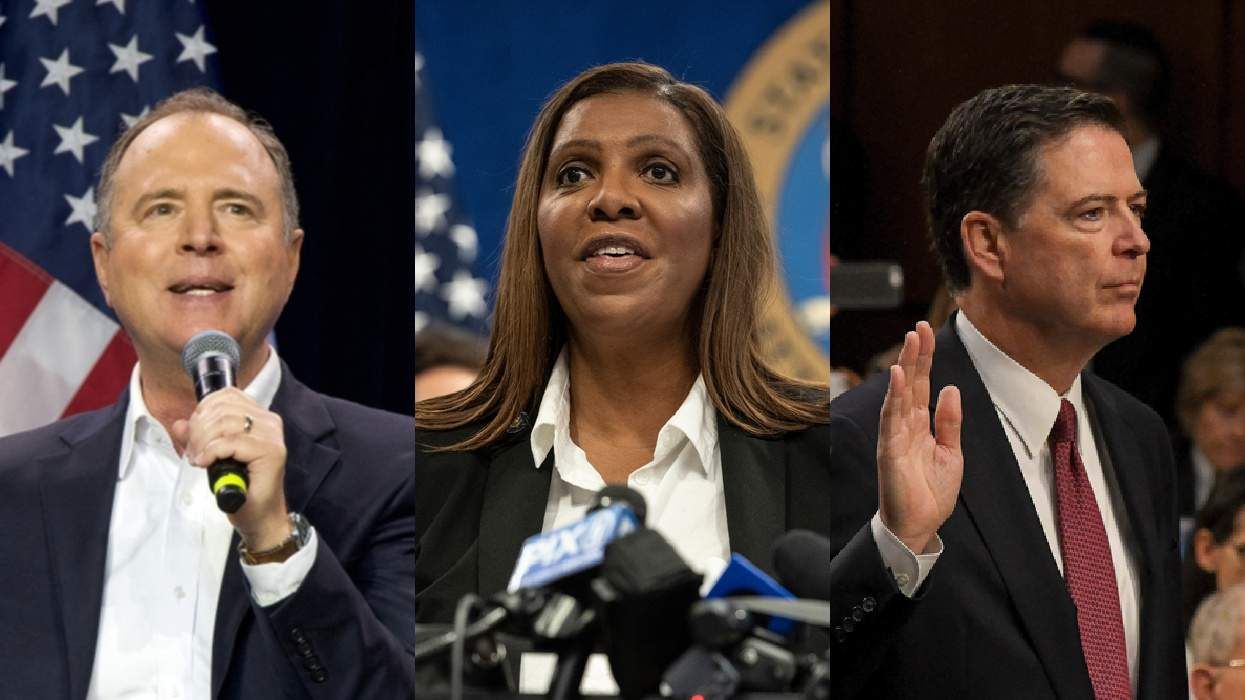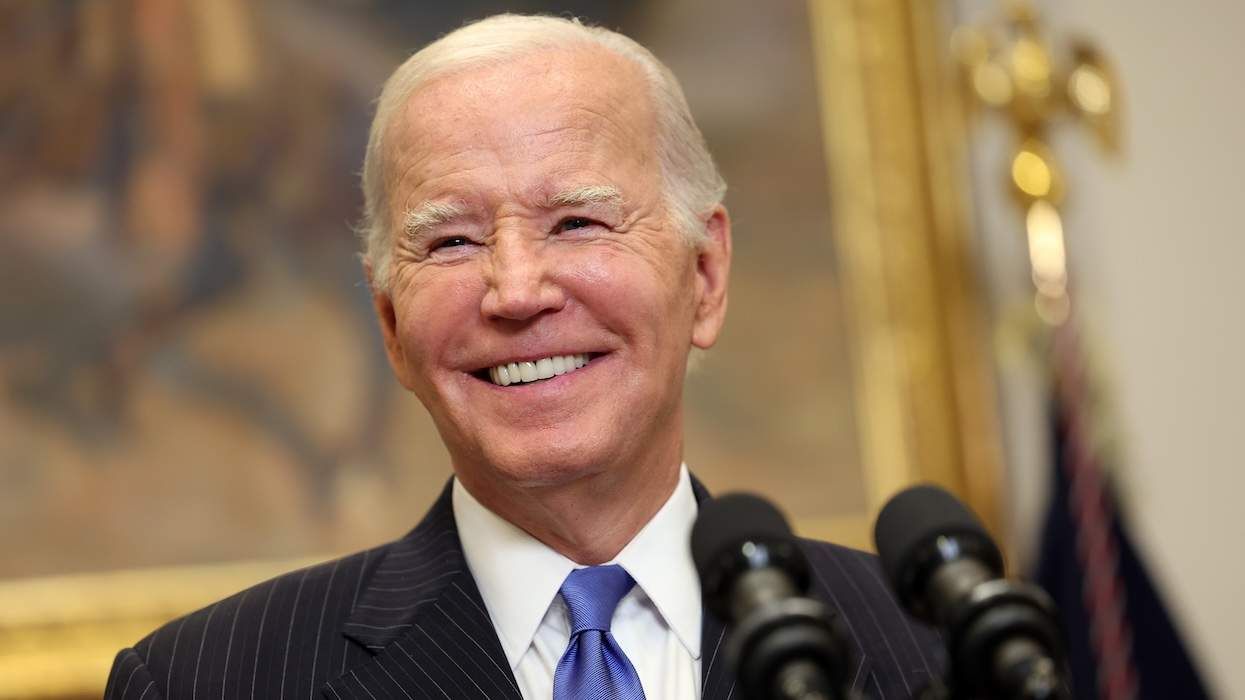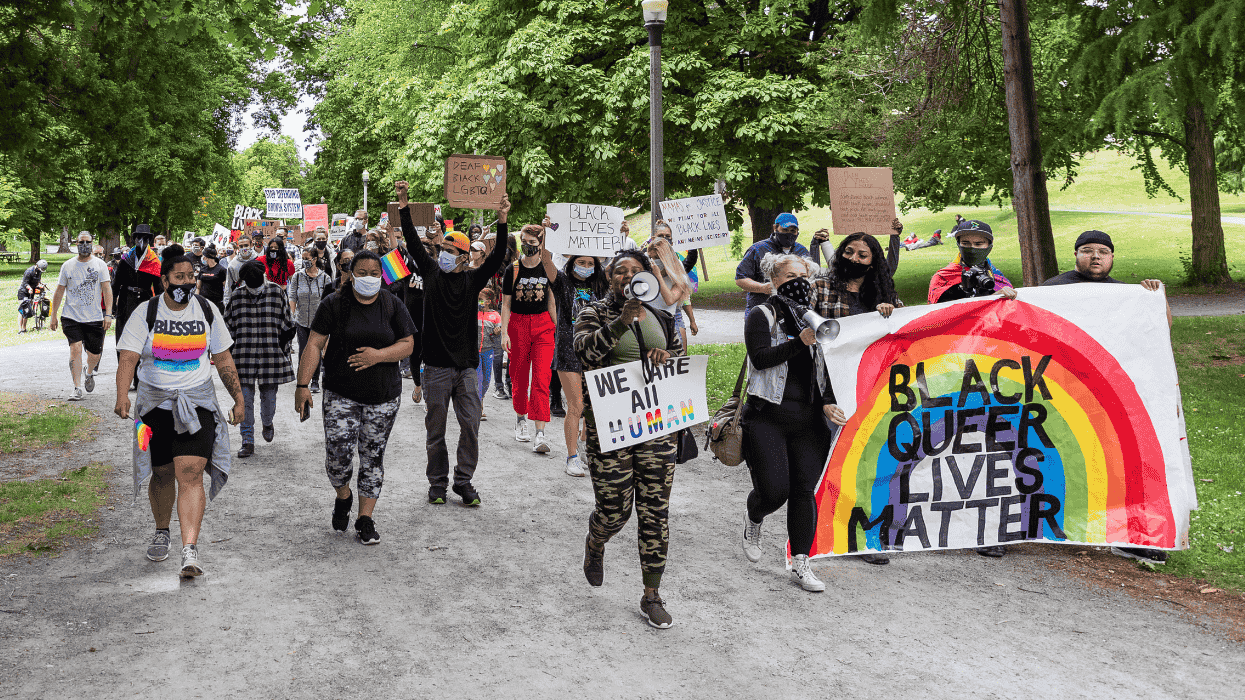CONTACTAbout UsCAREER OPPORTUNITIESADVERTISE WITH USPRIVACY POLICYPRIVACY PREFERENCESTERMS OF USELEGAL NOTICE
© 2025 Equal Entertainment LLC.
All Rights reserved
All Rights reserved
By continuing to use our site, you agree to our Privacy Policy and Terms of Use.
We need your help
Your support makes The Advocate's original LGBTQ+ reporting possible. Become a member today to help us continue this work.
Your support makes The Advocate's original LGBTQ+ reporting possible. Become a member today to help us continue this work.
This week was bookended by four separate but not unrelated news items that might serve as guiding principles for the LGBT movement moving forward -- two of them derived from Indiana and two of them from the Cheneys.
On Monday, Sen. Evan Bayh of Indiana, a moderate Democrat, announced that he would not seek reelection in November. Bayh, who sits on the Senate Armed Services Committee, has a solid record on LGBT issues and favors passing employment nondiscrimination protections as well as repealing DOMA and "don't ask, don't tell" -- though it's not entirely clear where his vote stands on overturning the policy this year.
By Friday what did become clear, is that the Democratic candidate who seeks to replace him, Rep. Brad Ellsworth, could have a whiplash effect on LGBT equality. As Bil Browning, an Indiana-based blogger recounted in this post, Ellsworth said he supported the Federal Marriage Amendment during his 2006 campaign, voted against federal hate-crimes protections in 2007, and has remained agnostic on ending the military's gay ban.
Guiding Principle number 1: The 112th Congress is already looking a whole lot more conservative and less LGBT-friendly than the 111th Congress regardless of who controls the chambers -- which are now both in contention.
Guiding Principle number 2: Why not adopt the rhetoric of conservatives on "don't ask, don't tell" since their de facto leader, former vice president Dick Cheney, and his daughter Liz Cheney floated the most effective arguments to date for its demise?
Here's VP Cheney on last Sunday's The Week: "I'm reluctant to second-guess the military in this regard ... When the chiefs come forward and say, 'We think we can do it,' then it strikes me that it's -- it's time to reconsider the policy. And I think Admiral Mullen said that."
On Thursday the younger Cheney added her seal of approval in an interview with Talking Points Memo: "It's time for it to end," she said. "The joint chiefs, certainly the chairman of the Joint Chiefs, has been clear about that..."
In case you're missing it, two of the top conservatives in the nation are not only aligning themselves with President Obama, but they are also ably wielding the powerful testimony of Adm. Mike Mullen better than the Senate Democratic leadership.
Saying that you don't want to second-guess the top military brass is a line that should sell as well in Missouri and Arkansas as it does in Maine and New Hampshire.
In fact, the Center for American Progress released polling numbers this week that prompted Stan Greenberg, the former pollster for President Bill Clinton, to say "don't ask, don't tell" has effectively been "neutralized" as an electoral issue.
When voters were asked if they would be more or less likely to vote for their Congress member if they voted to repeal the policy, 24% said they would be more likely and 27% said they would be less likely, with about half of respondents saying it made no difference.
In other words, there's zero political consequence for voting to repeal "don't ask, don't tell."
"I don't get many issues on which to speak about [this] kind of historic change in mood and climate," Greenberg said on a call with reporters. Greenberg noted that by large numbers, Catholics (64%), white married women (61%), and voters aged 50-64 (59%) support repeal; and along partisan lines, 68% of Democrats, 55% of independents, and 41% of Republicans support repeal.
"If you're sitting down as a Republican strategist, this is not where you would go to say, 'Let's tee this up,'" Greenberg said.
The polling also showed that when asked whether now was a good time to repeal the ban since America is involved in two wars, voters' sense of urgency actually went up, not down. By two to one, Greenberg said respondents chose the option of needing every available person over the notion that now is not the right time to do it.
The other interesting revelation on that call came from the CAP's Winnie Stachelberg, senior vice president of external affairs, who said she anticipated the introduction of repeal legislation in the Senate.
Sen. Joseph Lieberman "is looking toward introducing a repeal bill very shortly," said Stachelberg.
A spokesman for Lieberman's office told The Advocate he would not confirm the report but talks were ongoing.
"The senator and the staff have been consulting with the White House and the Senate leadership on the strategy for repeal," said Marshall Wittmann.
While introduction of legislation to overturn "don't ask, don't tell" would certainly represent movement in the Senate, passing a stand-alone bill is still not considered to be the surest method for ending the policy. Including such a measure in this year's defense authorization bill offers the best chance of securing repeal this year, according to almost every knowledgeable person with whom I've spoken.
But perhaps Senate Democrats will steal a page from the Cheneys' playbook yet on one pro-equality item that has now transcended social issue politics in the minds of American voters to be a clear-cut case of national security.
From our Sponsors
Most Popular
Bizarre Epstein files reference to Trump, Putin, and oral sex with ‘Bubba’ draws scrutiny in Congress
November 14 2025 4:08 PM
True
Jeffrey Epstein’s brother says the ‘Bubba’ mentioned in Trump oral sex email is not Bill Clinton
November 16 2025 9:15 AM
True
Watch Now: Pride Today
Latest Stories
HIV-positive men stage 'Kiss-In' protest at U.S.-Mexico border (in photos)
December 01 2025 12:56 PM
Maryland community outraged after ‘bigoted’ early morning rainbow crosswalk removal
December 01 2025 11:07 AM
19 LGBTQ+ movies & TV shows coming in December 2025 & where to watch them
December 01 2025 9:00 AM
Gay NYC councilman running for Congress says America is at a crossroads
December 01 2025 6:52 AM
What the AIDS crisis stole from Black gay men
December 01 2025 6:00 AM
Japan's ban on marriage equality is constitutional, according to a Tokyo court
November 28 2025 4:59 PM
How a queer fashion show took on New York Fashion Week
November 28 2025 4:58 PM
8 LGBTQ+ films coming in 2026 that we can't wait to see
November 28 2025 12:00 PM
A guide to the 'Heated Rivalry' actors, characters, and gay storylines
November 28 2025 4:11 AM




































































Charlie Kirk DID say stoning gay people was the 'perfect law' — and these other heinous quotes